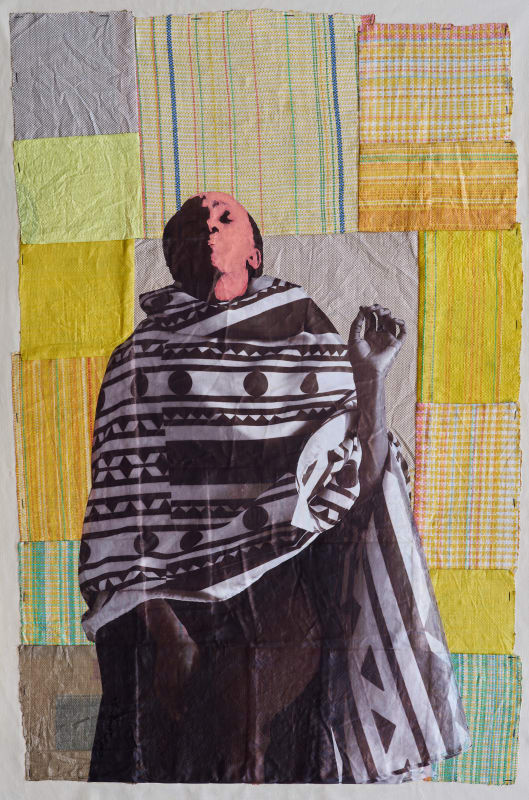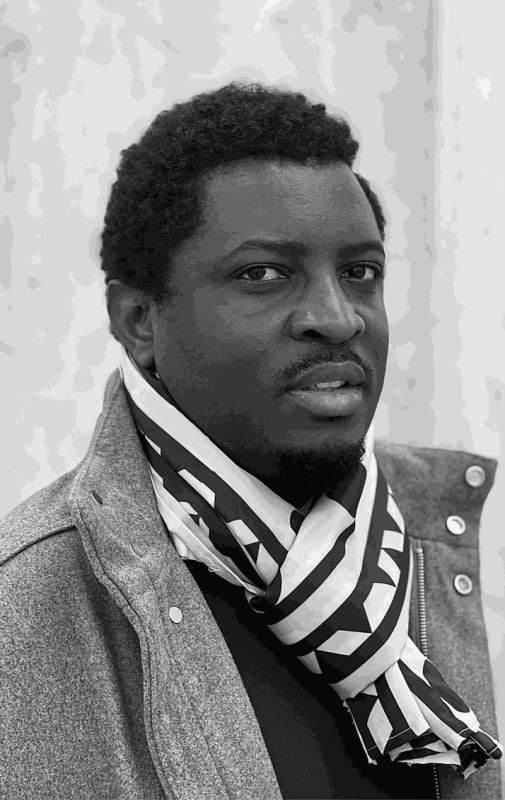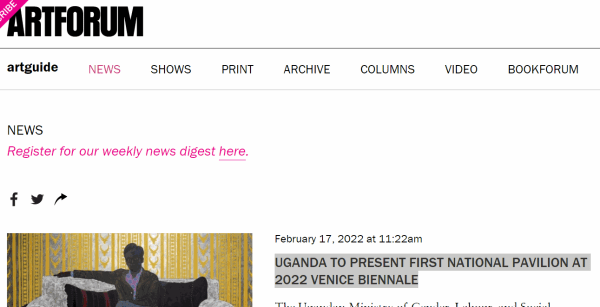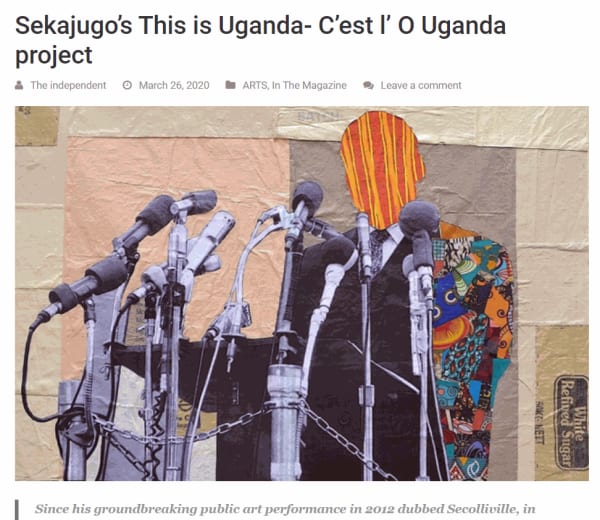Collin Sekajugo Ugandan, b. 1980
Collage is a predominant technique in Sekajugo’s art. Often these collages are produced using found objects, such as locally-sourced materials like Polypropylene bags, denim fabric, wastepaper, and product labels. The use of these materials renders these works both a commentary on contemporary consumer culture as well as an invitation for his audience to engage with his work through the familiar. Sustainability emerges as a resonant theme across these works as a result, encouraging reflection on environmental impact, the persistence of artmaking in Africa despite its marginalization, and the durability of prejudices regarding ethnicity and class. These collages are assembled using precise use of color and sweeping lines drawn by hand to sharply define forms and features.
Sekajugo’s art has been exhibited at solo and group exhibitions in Uganda, Rwanda, Kenya, Dubai, the United Kingdom, and Denmark, while some of his work resides in a permanent collection at the Smithsonian National Museum of African Art, Washington D.C. His work was part of the 2022 Venice Biennale’s Uganda National Pavillion, for which he received a Special Mention Award (with Acaye Kerunen) for outstanding achievement as a national pavilion. Other fairs that have showcased his work are 1-54 Paris and London, Johannesburg Art Fair, and Art X in Lagos. Sekajugo’s creative interests extend beyond his own portfolio to increasing the visibility of art from the places he calls home. He is the founder of RWAndA-n-Art Magazine, the Ivuka Arts Center in Kigali, Rwanda and the Weaver Bird Arts Community in Masaka, Uganda, all of which nurture and highlight art in his local communities.
Collin Sekajugo (b. 1980 in Masaka, Uganda) is the child of a Rwandan mother and Ugandan father, resulting in a multi-ethnic identity that heavily influences the content and technique of his art. A multi-media artist working with a range of techniques and materials, Sekajugo interrogates the subject of identity across his work, exploring social, cultural, political, and economic issues that afflict ethnic, class, and other identities. The artist often appears as the central figure in these works, rendering his art commentaries on his experience of living complex social identities as well as the failure of narrow, dogmatic ideologies in comprehending such multiplicity. The images he creates inspire a sense of disorientation in order to unsettle preconceptions about familiar identities, and to produce new and more accepting understandings of difference. As an avowed critic of ethnocentrism, Sekajugo aims for his work to establish a dialogue with the viewer on discrimination and violence, with the hope that his audience will leave with a more expansive and nuanced understanding of what it means to live in community.
-
Acaye Kerunen and Collin Sekajugo: Radiance – They Dream in Time, Uganda Pavilion
Whitewall, 23 Apr 2022 -

Uganda’s Inaugural at the Venice Biennale
Matt Kayem, Africannah, 9 Mar 2022 -

UGANDA TO PRESENT FIRST NATIONAL PAVILION AT 2022 VENICE BIENNALE
Art Forum, 17 Feb 2022 -
WaterAid celebrate a decade since clean water became a human right
Marigold Warner, 1854 Photography, 28 Jul 2020
-

Sekajugo’s This is Uganda- C’est l’ O Uganda project
The Independent, 26 Mar 2020 -
Artist Collin Sekajugo is recipient of 2019 Human Rights Award
New Vision, 8 May 2019 -
Human Rights Award, 2019 statement
Chapter Four, 7 May 2019 -
Interview With Rwandan-Ugandan Artist Collin Sekajugo
Isabelle Pitman, Culture Trip, 28 Dec 2016







